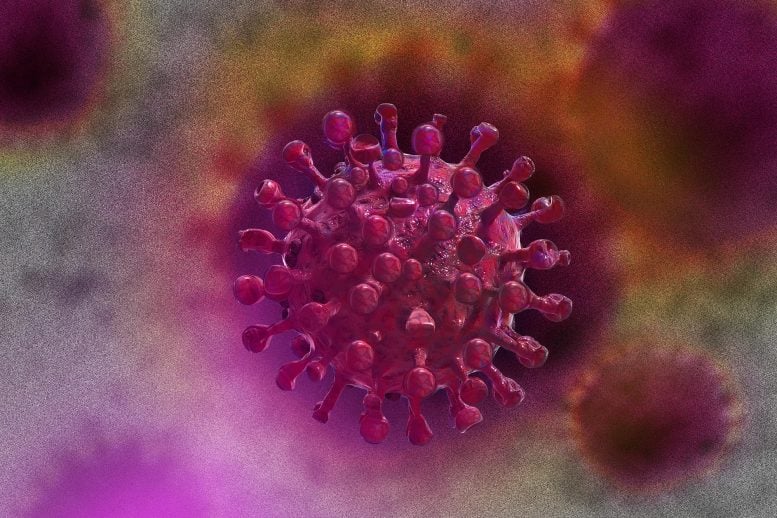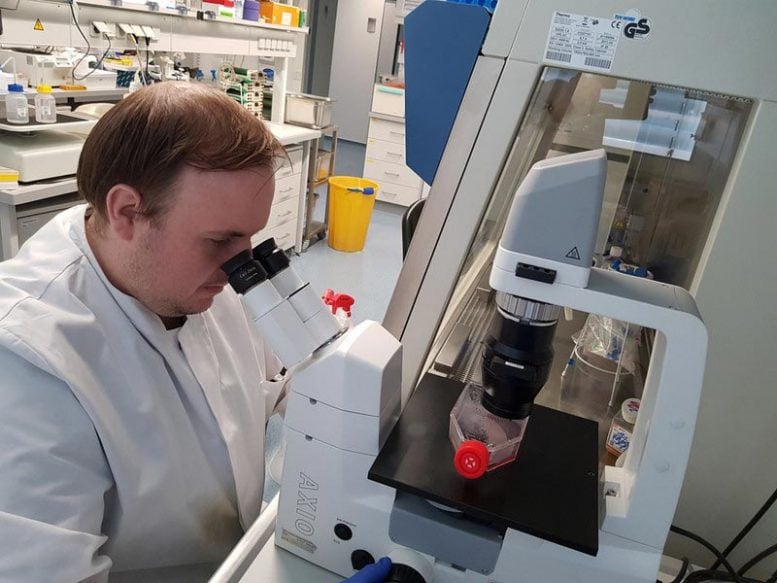
[ad_1]

More than 600,000 people worldwide have fallen victim to the lung disease COVID-19 so far, which is caused by the SARS coronavirus-2 (SARS-CoV-2). In order to obtain an effective therapy for COVID-19 as quickly as possible, drugs that are being used to treat other diseases are currently being repurposed for COVID-19 treatment.
The Infection Biology Unit of the German Primate Center (DPZ) – Leibniz Institute for Primate Research in Göttingen, together with colleagues at the Charité in Berlin, was able to show that the malaria drug chloroquine, which has been demonstrated to inhibit the SARS-CoV-2 infection of African green monkey kidney cells, is not able to prevent infection of human lung cells with the novel coronavirus. Chloroquine is therefore unlikely to prevent the spread of the virus in the lung and should not be used for the treatment of COVID-19.
It is known that SARS-CoV-2 is able to use two different routes to enter cells. First, after attaching to the cells, the virus can fuse directly with the plasma membrane and introduce its genetic material into the host cell. Second, it can enter the interior of the cells upon uptake via transport structures, called endosomes. In both cases, the attachment of the virus to the cells and subsequent entry is mediated by the viral spike protein. For this purpose, the spike protein must be activated either by the enzyme cathepsin L (in endosomes) or by the enzyme TMPRSS2 (on the cell surface). Depending on the cell type, both enzymes or only one of them can be available for activation.

Dr. Markus Hoffmann examines a cell culture under the microscope. Credit: Nadine Krüger
Chloroquine is a drug that is used to treat malaria. Since chloroquine inhibits the infection of monkey kidney cells with SARS-CoV-2, chloroquine has been tested in clinical trials as a possible candidate for the treatment of COVID-19. However, how chloroquine inhibits the infection of monkey kidney cells was not clear. The current study shows that chloroquine inhibits viral entry into these cells, most likely by blocking cathepsin L activity. This raised the question of whether chloroquine also inhibits the infection of lung cells that are known to produce TMPRSS2 but only a small amount of cathepsin L.
The study shows that chloroquine does not prevent SARS-CoV-2 entry into human lung cells and subsequent spread of the virus in these cells. “In this study, we show that the antiviral activity of chloroquine is cell type-specific and that chloroquine does not block the infection of lung cells. This means that in future tests of potential COVID-19 drugs, care should be taken that relevant cell lines are used for the investigations in order not to waste unnecessary time and resources in our search for effective COVID-19 therapeutics,” says Stefan Pöhlmann, head of the Infection Biology Unit at DPZ, adding: “COVID-19 is primarily caused by the infection of lung cells, for this reason these cells should be given priority in efficacy tests.”
Reference: “Chloroquine does not inhibit infection of human lung cells with SARS-CoV-2” by Markus Hoffmann, Kirstin Mösbauer, Heike Hofmann-Winkler, Artur Kaul, Hannah Kleine-Weber, Nadine Krüger, Nils C. Gassen, Marcel A. Müller, Christian Drosten and Stefan Pöhlmann, 22 July 2020, Nature.
DOI: 10.1038/s41586-020-2575-3
The study was conducted in cooperation with the Charité in Berlin and the University of Bonn.
[ad_2]
Source link